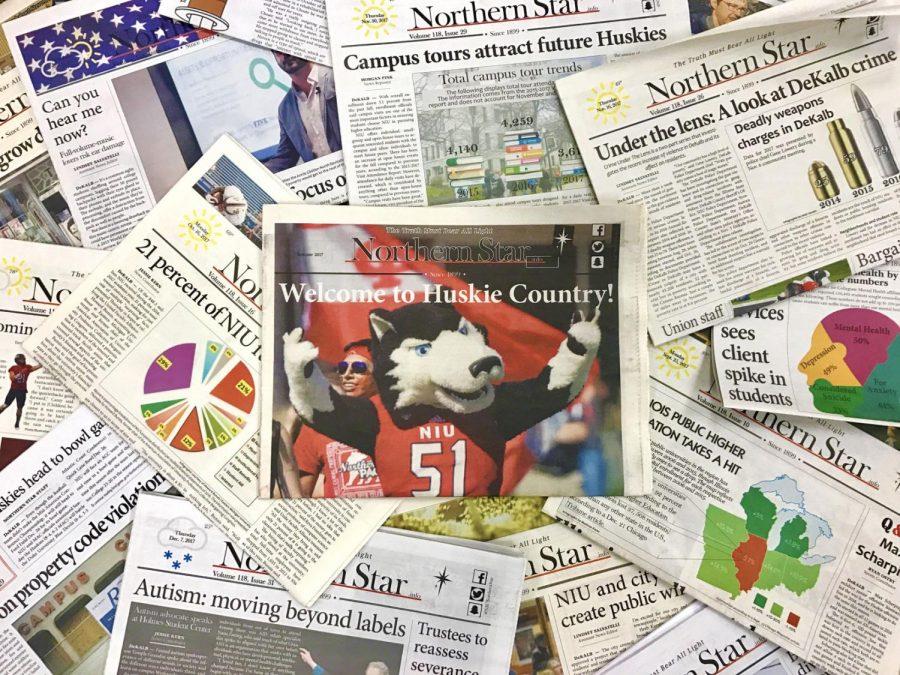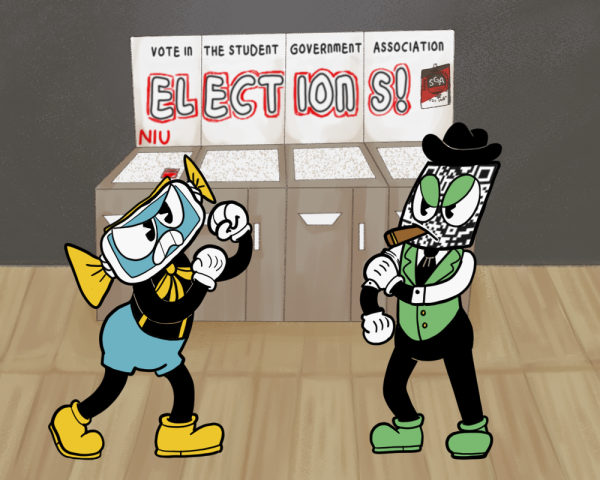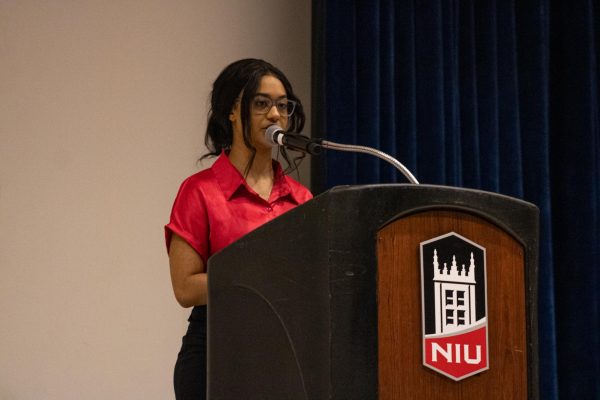Editorial: Media literacy crucial to reading online
A pile of Northern Star newspapers is scattered.
April 14, 2021
News media continues to move their content online, a place where information is readily available regardless of whether it’s true. In the wake of a digital news era, disbelief and trust in the news have fluctuated. The Northern Star Editorial Board urges everyone to build their media literacy skills before accepting information online at face value and forming judgments or opinions.
Media literacy is the ability to access, analyze and evaluate media in different forms, according to the Center for Media Literacy. The Editorial Board believes the skill is incredibly relevant and necessary for news consumption.
News consumers should be selective of where they find their news. About 55% of American adults use social media for news sometimes or often, according to a January 2021 Pew Research Center study. The problem on social media platforms is articles, whether they are from a trustworthy news site or an unvetted source, are equally accessible.
People who use social media as their main source for political news are less likely to engage with the news, follow the news closely, and tend to be less knowledgeable about current events, according to a November 2020 Center’s American News Pathways study.
It is especially crucial the public detects and analyzes media because the widespread availability of misinformation has directly affected news trust and public opinion. Readers will often critique newspapers and news sources for political bias. However, these judgments can stem from flawed, competing information from articles with fake news, speculation and conspiracy theories.
For example, some people still believe there was no foreign involvement in the 2016 and 2020 elections, and major news sites running stories about interference were politically biased. However, Facebook had to delete over 100 networks worldwide for engaging in coordinated inauthentic behavior since Facebook started investigating the issue in 2017. Coordinated inauthentic behavior is when groups, campaigns, accounts or pages deliberately share misleading information to manipulate public discourse. These accounts acted before major democratic elections, according to Facebook’s August 2020 coordinated inauthentic behavior report. Facebook found a dozen networks linked to the Russian Internet Research Agency. The report says two networks removed in 2020 were IRA-linked campaigns pretending to be news entities on the social media site.
People who often get their news from social media were also more likely to see and hear the conspiracy claiming COVID-19 was intentionally planned, according to a June 2020 Pew Research study.
The Editorial Board believes people should read entire articles and read often to hone their critical analysis skills. Readers often spend less than 15 seconds scanning articles, according to a Chartbeat study. That is not enough time to absorb or engage with the information. News consumers may not be aware of some unfavorable, but prevalent, news conventions like using sensational headlines to increase engagement. Headlines and images accompanying stories are not always accurate depictions of an article’s main point in digital news.
Any article or post can be platformed, even though news requires more sourcing and verification. The Editorial Board feels news consumers must remain vigilant and build media literacy skills to critically analyze the media they consume.














